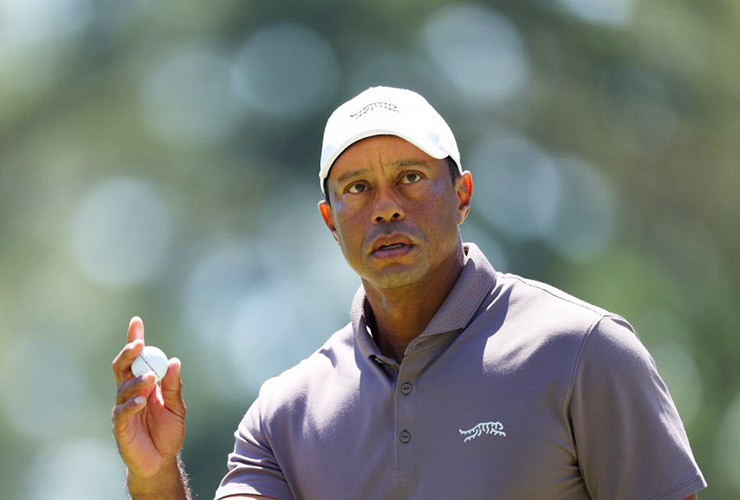The PGA Tour informed players Wednesday of their individual grants in the tour’s new equity program and some of the game’s biggest stars reportedly will get hefty checks.
The tour does not plan on publicly releasing the amounts, but the Telegraph reported earlier on Wednesday that Tiger Woods was set to receive a $100 million grant, with Rory McIlroy getting $50 million, and Justin Thomas and Jordan Spieth receiving $30 million each.
The first $930 million of grants were distributed Wednesday, with players getting a note from PGA Tour commissioner Jay Monahan (who also holds the CEO title of PGA Tour Enterprises) detailing their award. Tyler Dennis, the PGA Tour’s chief competitions officer, later went on Golf Channel’s “Golf Today” to explain the process.
“There’s no other sports league in the world that has this significant number of their athletes as owners of their own sports organization,” Dennis said. “And we’re really excited about it because, ultimately, we want to do what’s right.”
At the end of January the tour came to an agreement with the Strategic Sports Group for private investment, which coincided with the launch of PGA Tour Enterprises. The Enterprises division will house the PGA Tour’s commercial businesses and rights, as well as those of the DP World Tour. This will allow the tour to maximize revenue for itself and players while keeping the tour’s non-profit 501(c)(6) classification that carries tax exemptions for “business leagues, chambers of commerce, real estate boards, boards of trade, and professional football leagues” intact. SSG has pledged up to $3 billion to PGA Tour Enterprises with an initial $1.5 billion investment. Players were told they would receive equity into PGA Tour Enterprises, which the tour says has a valuation of $12 billion. The grants are based on playing accomplishments, future participation and tour status.
The grants were divided into four categories:
• Group 1 consists of $750 million in aggregate equity based on career performance, last 5-year performance, and Player Impact Program results. A total of 36 players were in this group.
• Group 2 consists of $75 million in aggregate equity and was granted to 64 players based on last 3-year performance.
• Group 3 consists of $30 million in aggregate equity and was granted to 57 players that have earned certain fully-exempt PGA Tour status categories.
• Group 4 consists of $75 million in aggregate equity and was granted to 36 players who were instrumental to building the modern PGA Tour, based on career performance.
There is an eight-year vesting period, where the grants will be worth 50 percent of their value after four years, 75 percent after six and the full amount at the end of eight. Not all players necessarily received a grant, although all—including young and future tour players—have the chance to receive grants down the line. An additional $600 million is earmarked towards these stakes. The $600 million will be awarded in recurring player grants of $100 million each year, starting in 2025.
“We want the players to be fully aligned with their organization,” Dennis said. “It’s something no other sport has done before and we’re seeing an incredible amount of excitement about that.”
The equity is essentially the tour’s answers to the opulent guaranteed payouts distributed by LIV Golf. Dennis did not say if LIV Golf members would get the chance to be a part of the equity should unification in the professional game ultimately come to fruition. The tour announced in January that the deal with SSG will allow for co-investment from PIF in the future, but there are antitrust regulations that need to be hurdled, and Congress has announced that its investigation into PIF and its investments in American businesses will continue.
Image: Andrew Redington









